Bitcoin ATMs – A Beginner’s Guide
By: Alexander Reed | Last updated: 1/6/24
Bitcoin ATMs let users buy and sell Bitcoin with cash, with relative anonymity. In this post, I’ll cover the different Bitcoin ATMs around, their pros and cons and also show you how to find a Bitcoin ATM near your home.
Bitcoin ATM Summary
Bitcoin ATMs, also known as BTMs, are machines that accept cash and dispense Bitcoin in return. Some ATMs also buy Bitcoin from you and dispense cash in return.
Due to their anonymous nature, most Bitcoin ATMs have strict buying limits, with some even requiring a KYC process. Here are the top Bitcoin ATMs around:
That’s Bitcoin ATMs in a nutshell. If you want a more detailed review of BTMs, keep on reading. Here’s what I’ll cover:
- What is a Bitcoin ATM?
- How to Use a Bitcoin ATM?
- Best Bitcoin ATMs
- Bitcoin ATM Manufacturers
- Bitcoin ATM Locations
- Operating Your Own Bitcoin ATM
- Conclusion
1. What is a Bitcoin ATM?
A Bitcoin ATM acts like a physical Bitcoin exchange where you can buy and sell Bitcoin with cash. The world’s first Bitcoin ATM was opened on October 29, 2013, at Waves Coffee Shop in Vancouver, Canada. Bitcoin ATMs often consist of a scanner, a cash dispenser, and a computer to manage the transactions.
How Bitcoin ATMs Work
Bitcoin is dispensed either to the buyer’s own Bitcoin wallet (via scanned QR code on the buyer’s mobile device or paper wallet) or to a paper wallet generated and printed by the ATM at the time of purchase.
The price of the purchase is dependent on the current Bitcoin exchange rate, which the ATM retrieves from the internet in real-time. An additional percentage fee is charged by the ATM for the service, which is also factored into the price.
Do Bitcoin ATMs Give Cash?
Some BTMs work both ways – meaning they can dispense Bitcoin in exchange for cash and they can also dispense cash in exchange for Bitcoin. However, most models work only for buying Bitcoin.
How much fee do Bitcoin ATMs charge?
Bitcoin ATMs charge an average fee of 15%. However, this is a rough average and the fees vary between ATMs, with some charging as much as 20% or more. Make sure to read the instructions and fees on the machine before starting the process.
2. How Do I Use a Bitcoin ATM?
While each BTM is different, the buying process in all of them is basically the same:
- Choose “Buy Bitcoin”
- Scan the QR code of your Bitcoin address with the BTM scanner
- Depending on the ATM and jurisdiction, you may need to provide identification
- Enter the amount you want to purchase
- Insert cash to the BTM
- Wait for the machine to process the transaction
- Check your Bitcoin wallet for the transaction confirmation
The process of selling Bitcoin to a Bitcoin ATM is much more diverse and depends on the specific BTM, however, these machines are pretty intuitive to use so just follow the instructions on the screen.
3. Best Bitcoin ATMs
General Bytes
General Bytes, a Czech-based company, is the world’s largest Bitcoin, blockchain, and cryptocurrency ATM manufacturer. The company has sold over 13,300 machines in over 143 countries.
Their Bitcoin ATMs support over 180 different fiat currencies and over 40 different cryptocurrencies. The company manufactures three main BTM models:
BATMTwo
The BATMTwo is their most popular model and is designed to be securely mounted on a wall or optional stand. It supports only buying cryptocurrencies and has a built-in finger scanner for AML/KYC compliance. The BATMTwo costs around $3,649.
There are also two updated versions of the BATMTwo, the BATMTwoPro ($4,799) and BATMTwoUltra ($4,999). The BATMTwo has a larger screen and updated banknote validators to flawlessly identify fake and damaged notes. The BATMTwoUltra is a more compact version of the BATMTwo but also offers bi-directional transactions, meaning that it can convert cash to crypto as well as converting crypto to cash.
BATMThree
The BATMThree has an updated design, a 23″ FullHD display and is a fully-mounted BTM. This Bitcoin ATM offers both buying and selling of Bitcoin and other cryptocurrencies. Unlike the BATMTwo, this model can also issue users an NFC card that contains a private key which they can use later to send or receive Bitcoin by placing the card on the NFC reader. The BATMTHREE costs around $6,698.
BATMFour
The BATMFour is the latest model from General Bytes, matching all of the BATMThree’s features in a new design. It allows both the buying and selling of cryptocurrency, plus the option of individual configuration, and retails for $7,198.
Genesis Coin
Genesis Coin Inc., based in San Diego, US, is the second most popular Bitcoin ATM manufacturer. The company supplies three different BTM models:
Genesis1
A 2-way Bitcoin ATM (buy and sell) packed with additional features such as a bill validator, barcode scanner, EMV card reader, fingerprint reader (optional), and a thermal printer. The Gensis1 costs $14,500.
Satoshi1
The Satoshi1 comes in both a 1-way and 2-way model. This machine is much smaller than the Genesis1 and has a 21’’ screen, a high-definition camera, and an optional fingerprint scanner. The Satoshi1 costs $7,380, with additional costs of around $2,100 if a cash dispenser is required. 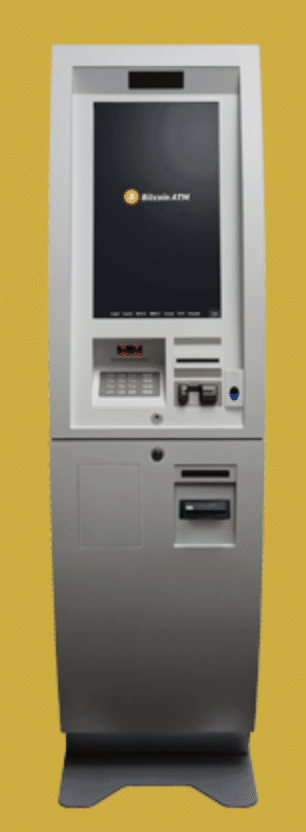
Finney3
The Finney3 is the newest and smallest BTM from Genesis Coin. This 1-way BTM has a 21’’ screen and similar features as the Satoshi1, only it’s smaller and should be mounted due to its size. The Finney3 costs $4,500.
Lamassu
Lamassu, a Swiss company, is the oldest BTM manufacturer around (since 2013). Lamassu machines are open-source and support Bitcoin, Zcash, Ethereum, Bitcoin Cash, Litecoin, Monero and Dash. You can add additional coins manually if needed. Lamassu has four different Bitcoin ATM models:
Tejo
The latest model from Lamassu, the Tejo is designed for simplicity and elegance with its steel construction. This BTM comes as a 1-way (€6,200) or 2-way (€7,700).
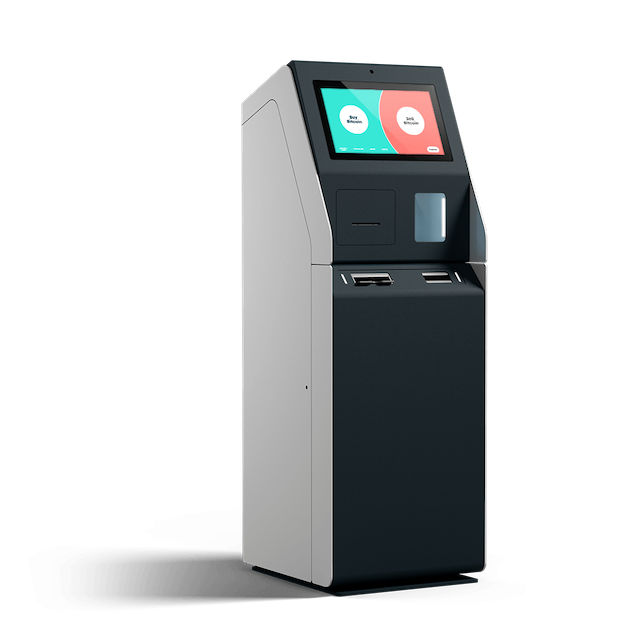
Gaia
Designed to be wall-mounted or table-mounted and weighing only 25 kgs, Gaia can fit into a flight case. Gaia is a buy only Bitcoin ATM and it costs €3,800.
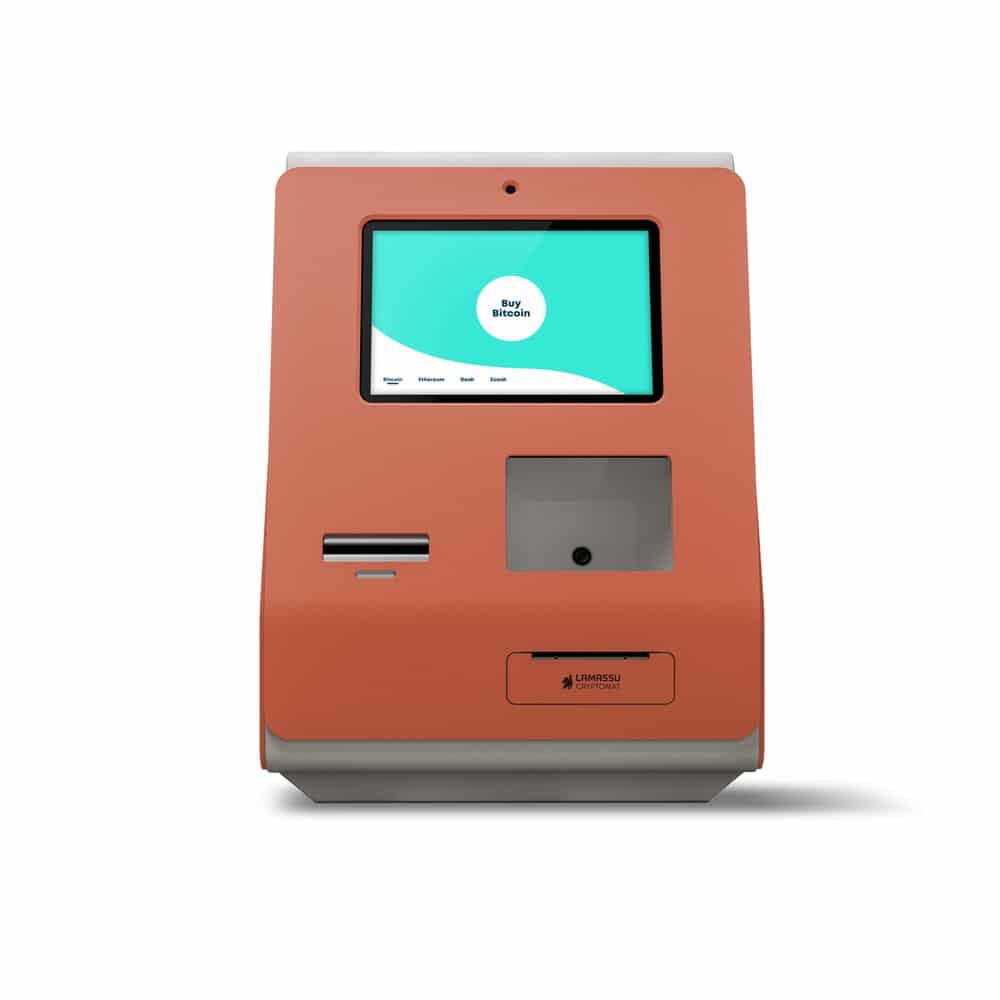
Sintra
Fabricated from sheets of 2.5mm steel and an all-glass user interface, the Sintra has a custom computer board with battery backup, 3G connectivity, tamper sensors, and front door control. This is a 1 or 2-way Bitcoin ATM that is beautifully designed. The 1-way model costs €5,800 while the 2-way model costs €7,300.
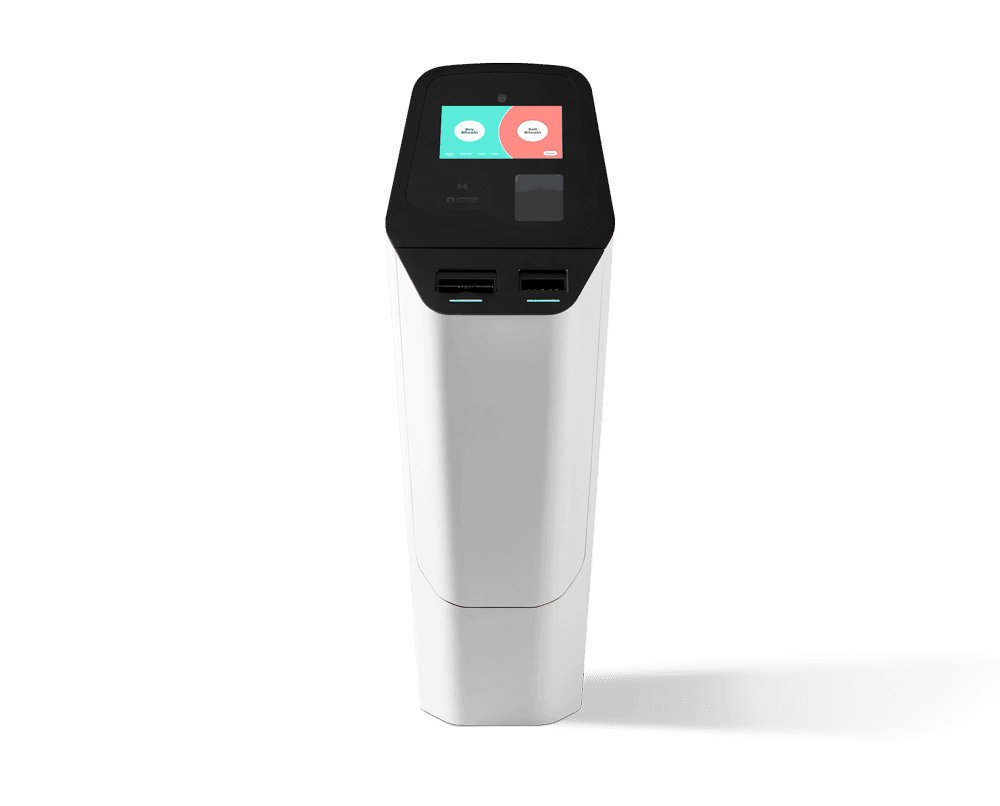
Sintra Forte
The Sintra Forte is about 20% larger than the Sintra and includes a vault controlled by an electronic lock. The vault is constructed from 6mm hardened steel and contains the note validator, note dispenser, and computer board. This BTM also comes as a 1-way (€6,560) or 2-way (€8,000).
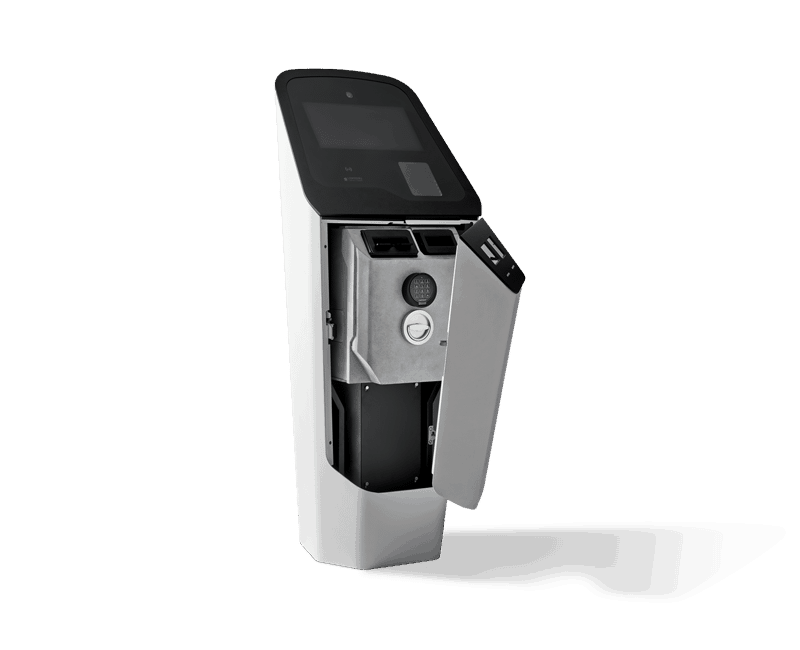
4. All Bitcoin ATM Manufacturers
There are almost 30 Bitcoin ATM manufacturers. Here’s a list of all of them:
- General Bytes
- Genesis Coin
- Lamassu
- BitAccess
- Coinsource
- Covault
- Order Bob ATM
- Digital Mint
- Shitcoins Club
- Coinme
- Bytefederal
- zzBit
- wBTCb
- RusBit
- BTC facil
- BBFPro
- Bcash Greece Inc
- Intellogate
- BitTeller
- Bitstop
- ChainBytes
- Bitnovo
- Vault Logic
- Trovemat
- CoinLogiq
- Open Bitcoin ATM
- CryptoMatic ATM
- CryptoGo
- BitOcean
5. Where Can I Find a Bitcoin ATM?
Here’s a complete list of Bitcoin ATMs around the world, courtesy of CoinATMRadar. Just find your location and see where the nearest Bitcoin ATM is to you.
If you are in the US, try out one of Coinflip’s ATMs that currently offers 10% off transaction fees when you use promo code “99BTC”.
The map also allows you to search for Altcoin ATMs if you want to buy/sell other cryptos. Every ATM takes a commission from each trade; the amount varies from one device to another, so make sure you’re aware of the fees that are usually stated on the machine.
6. Regulations for Operating a Bitcoin ATM in the US
Below are four key elements around which you can build your compliance strategy prior to launching a Bitcoin ATM:
Research money transmitter requirements in the state of operation
It’s important to understand that some states are friendlier to Bitcoin ATMs or Bitcoin in general than others. This could mean the difference between a comprehensive and costly state licensure process and an exemption under state money transmitter law.
The differences are vast, and they are ever-changing. States continue to evolve their application of existing and antiquated money transmission laws.
As of September 2020, 49 states share unified regulation for cryptocurrency firms so as to accommodate Bitcoin companies.
That said, it’s vital to understand the requirements in your state. You can check the latest laws that are applicable to your specific state here.
Register as a money services business (MSB) with FinCEN
It might be difficult to believe, but registering with FinCEN, the nation’s top money laundering watchdog, might be the easiest compliance task. It’s literally a “check-the-box” activity. Indeed, in contrast to the permission-based state licensure process, at the federal level, entities merely register with FinCEN via an online portal.
The process can typically be completed in under an hour. While registering with FinCEN is a simple exercise, it comes with much responsibility. By checking the boxes, so to speak, you are agreeing to be regulated by FinCEN and thus to meet certain requirements to the satisfaction of regulators.
This includes, among other things, registering at the state-level, if applicable: Developing and implementing an anti-money laundering (AML) program, retaining certain transactional information, and reporting suspicious activity and transactions over $10,000.
Implement an anti-money laundering (AML) program
FinCEN regulation requires the implementation of a written AML program. An effective AML program is one designed to prevent your Bitcoin ATM from being used to facilitate money laundering activities. Each AML program must be in writing and address, at minimum, the “four pillars” as follows:
- Incorporate policies, procedures, and internal controls reasonably designed to assure compliance with the Bank Secrecy Act (BSA)
- Designate a compliance officer responsible for day-to-day compliance with the BSA and AML program.
- Provide ongoing, targeted training to appropriate personnel concerning their responsibilities under the AML program.
- Provide for an independent review or audit of your AML program on an annual basis, at minimum.
Test your AML program
Start by running some sample transactions from your Bitcoin wallet through the terminal(s). Be sure to test your thresholds to ensure that proper know your customer (KYC) requirements are triggered, as well as any “red flag” indicators of potentially suspicious or unusual activity.
Be sure to confirm that customer and transaction information is properly obtained and recorded. In so doing, document your findings, especially any subsequent changes to your AML program as a result of this testing.
7. Conclusion
Bitcoin ATMs are a very convenient way to buy and even sell Bitcoin very quickly and sometimes even anonymously. While most BTMs operate more or less the same way, it’s always recommended to check for the fees on the BTM you’re planning to use.
Also, as a precaution, I’d even video the whole buying process so you’ll have proof if something goes wrong.
A special thanks to Joe Ciccolo, the founder & president of BitAML, for adding his knowledge about Bitcoin ATM regulations. He can be reached at [email protected]. Have you had any experience with Bitcoin ATMs? I’d love to hear it in the comment section below.

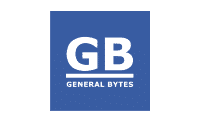

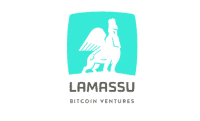
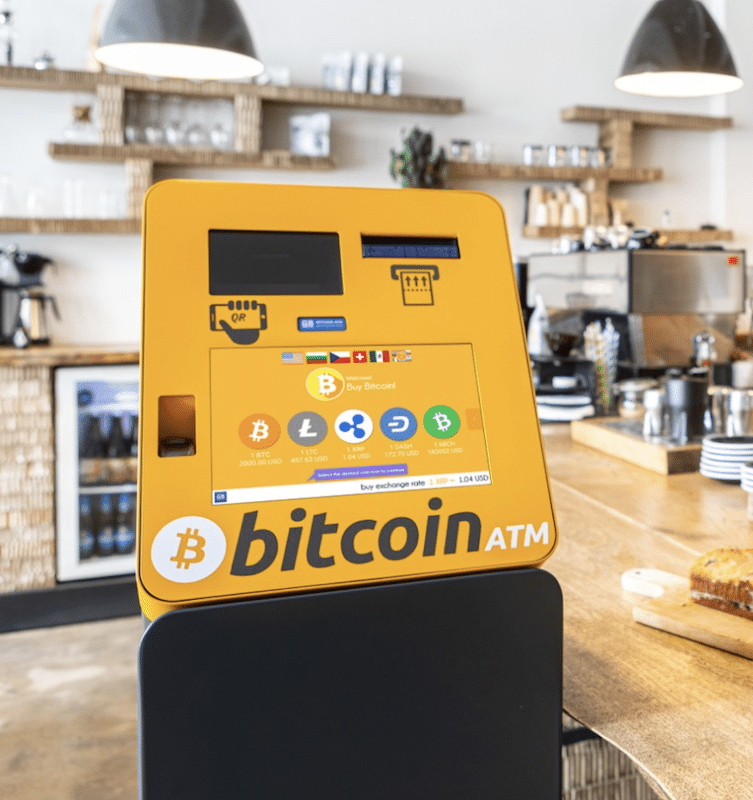
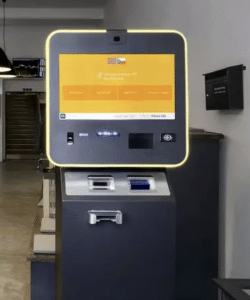
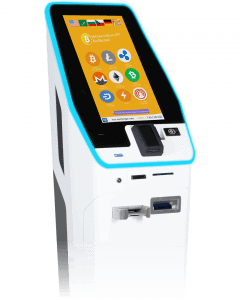
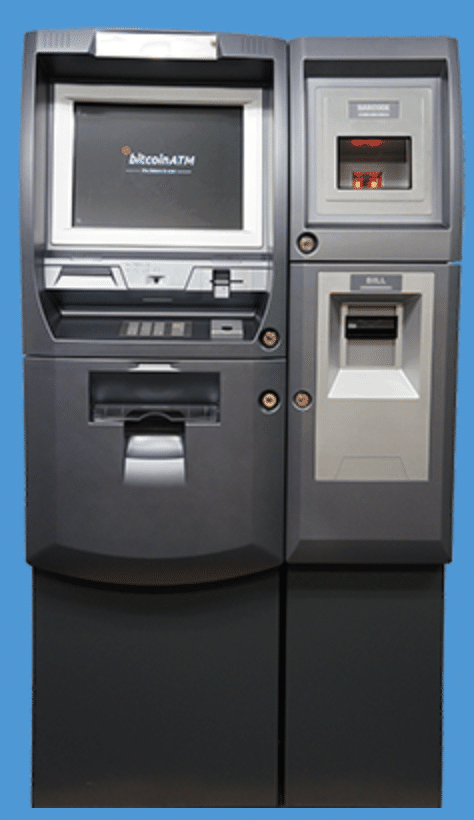
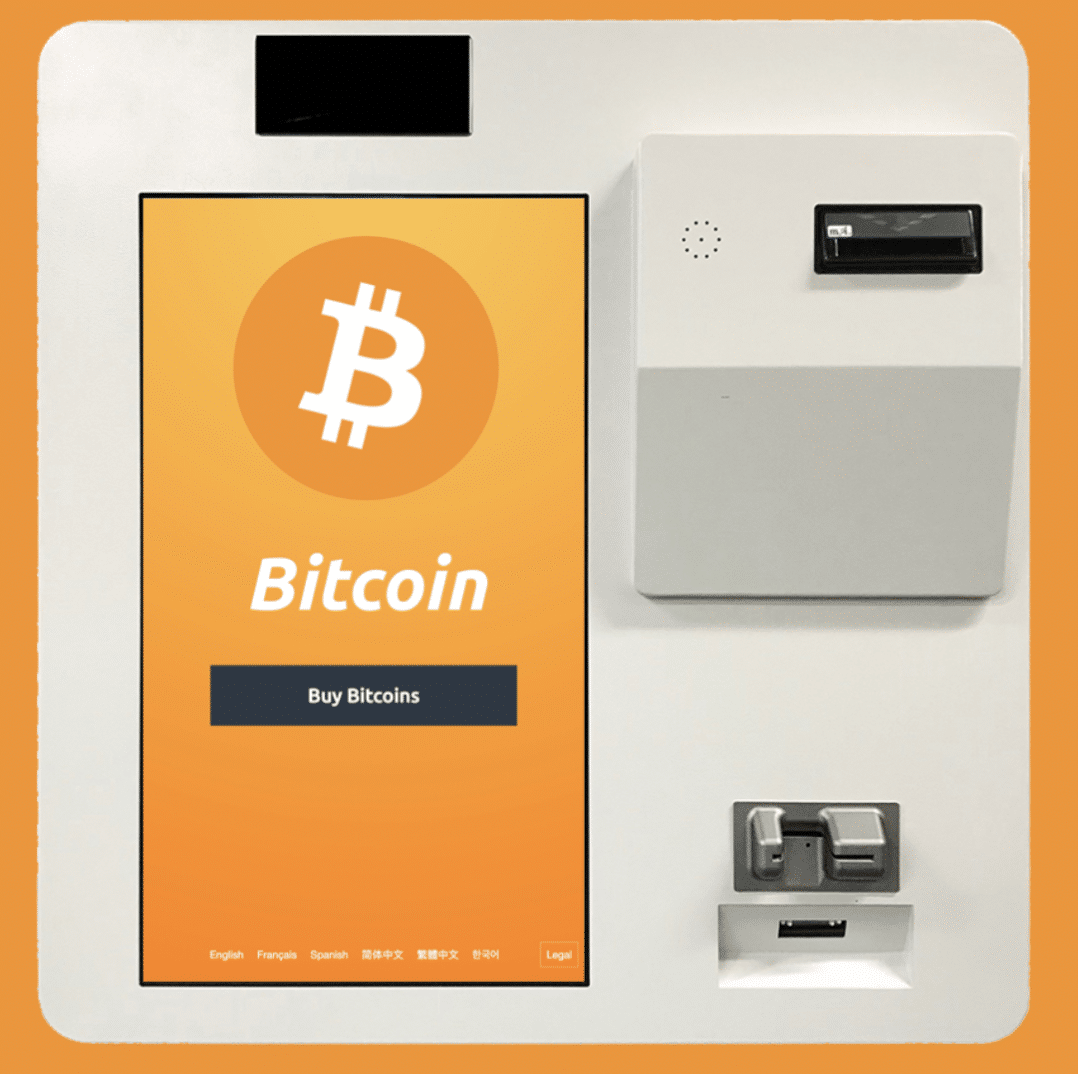


What are charges for using Bitcoin atm
hi ,
if I would like to buy 6000 $ of bitcoins by putting on my wallet , do you recommend using a bitcoin ATM? if not, which way do you recommend?
Hi Jamy,
Well, it’s an option. The downside of ATMs is that they usually have very high fees in comparison to an exchange or other methods, like trading directly with another person (peer to peer trading).
For $6000 worth, I’d say you’d probably save quite a bit (or get more BTC, more accurately) by using an exchange over an ATM. Of course, if you prefer the cash, speed, and convenience of an ATM, you can still go that way.
It will take some time to get registered on an exchange, a few days probably, and also some time to send them money via a bank. There are also privacy issues, as they will want all your details before letting you trade.
If the exchange sounds right to you, check out our Exchange Reviews section up top. Otherwise, I can recommend some peer to peer options, although these are more difficult to perform in most cases.
Hi
I’m a beginner and the new company uses this I would like info on getting started. Never seen or used one. Help.
Here is a guide on how to buy Bitcoin from a Coinhub Bitcoin ATM. It can be found here with images on buying from a Bitcoin ATM: https://coinhubatm.com/guides/
These were the 9 steps on using their machine:
Step 1
Click BUY
Use the touchscreen interface on the ATM to press BUY.
Step 2
Click AGREE to our Privacy Policy
If you agree to our privacy policy, click AGREE to proceed to the next step.
Step 3
Choose LESS or MORE than $2000
Choose whether you are going to purchase less or more than $2000 for the transaction. Click the “Less Than $2000” even if you are purchasing exactly $2,000 for the amount of cash to be entered.
Step 4
Enter your Mobile Phone Number
Enter your phone number and click OK.
Step 5
Enter the One-Time Passcode
Wait 30 seconds and enter the one-time passcode which was sent to your mobile phone.
Step 6
Scan your Crypto Wallet QR Code
Scan your Bitcoin Wallet face-up which looks like a QR code. If purchasing other cryptocurrencies, make sure to scan the correct wallet. Coinhub cannot offer refunds for incorrect wallets scanned as cryptocurrency is irriversible. See our FAQ on where to download a Bitcoin Wallet.
Step 7
Insert Cash
Insert your bills one at a time for the total sum of fiat you would like to use to purchase cryptocurrency. The crypto quote will be present on the screen for you to confirm once all cash is inserted.
Step 8
Confirm amount and click BUY
Once the amount of cash is inserted, confirm the crypto shown on the screen to be sent and click Buy if confirmed.
Step 9
Purchase Complete!
Click DONE. You will receive an SMS transaction receipt to your phone number. The cryptocurrency has been sent to your wallet provided and please allow 30 minutes for it to be seen in your wallet. Congratulations – you are now a crypto holder! Make sure to keep your wallet safe and secure.
Wow, it was nice piece of information and I’ve got operative knowledge from it. I was in search of guide on Bitcoin ATM Ottawa and you have shared it in brilliant and easy to understand manner. Special thanks for presenting detailed map of BTS atm. You have well said that “Bitcoin ATMs are a very convenient way to buy and even sell Bitcoins very quickly and sometimes even anonymously”. Thanks for sharing your knowledge in cryptocurrency arena. **link removed**
Thank you for sharing.
I have a question.. I’m looking to invest 100 dollars into bitcoin… and I would like 2 know if I select “Buy”..or “Sell”??.. in order to invest money.
Hi Dion,
OK, well it depends where you’re getting the bitcoins from, but generally speaking that would be a “buy” transaction. You’re buying BTC with USD. If / when you want to exchange the BTC back to USD, that’s generally known as a “sell” transaction.
99.9% of the time that’s how things will be phrased. We’re used to buying things with fiat money and sellings things for fiat money, so it’s just easier for most people to think of it this way.